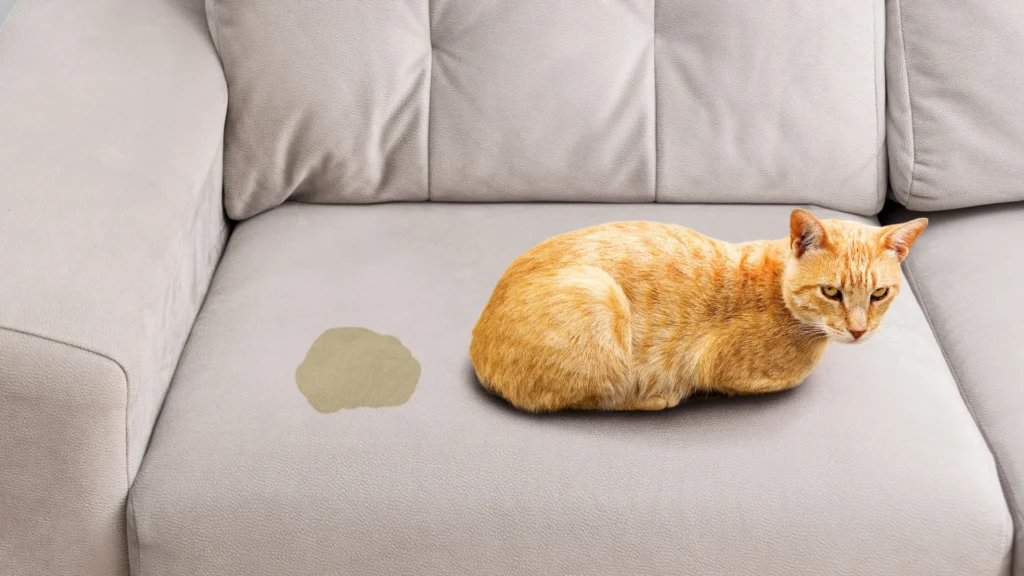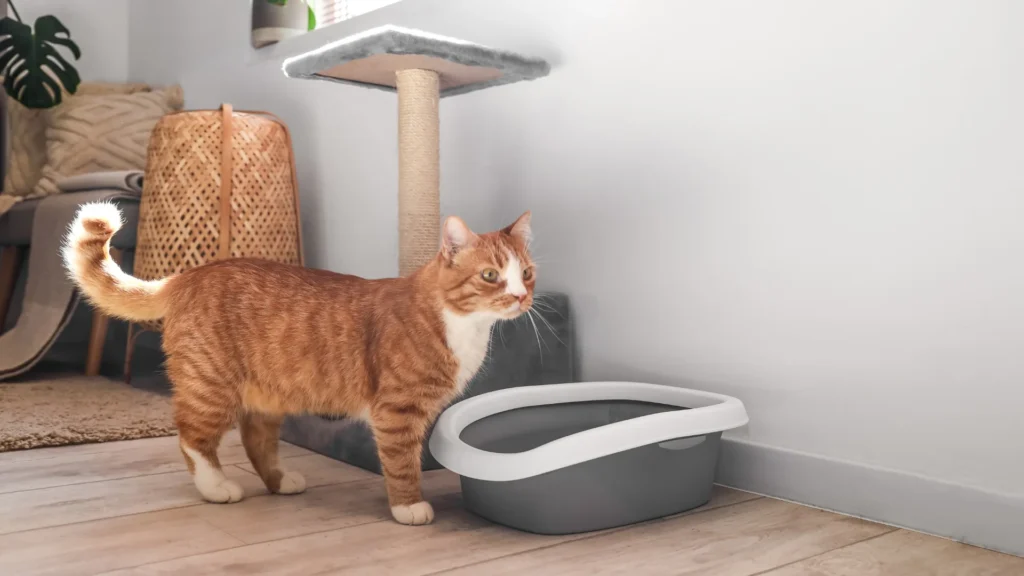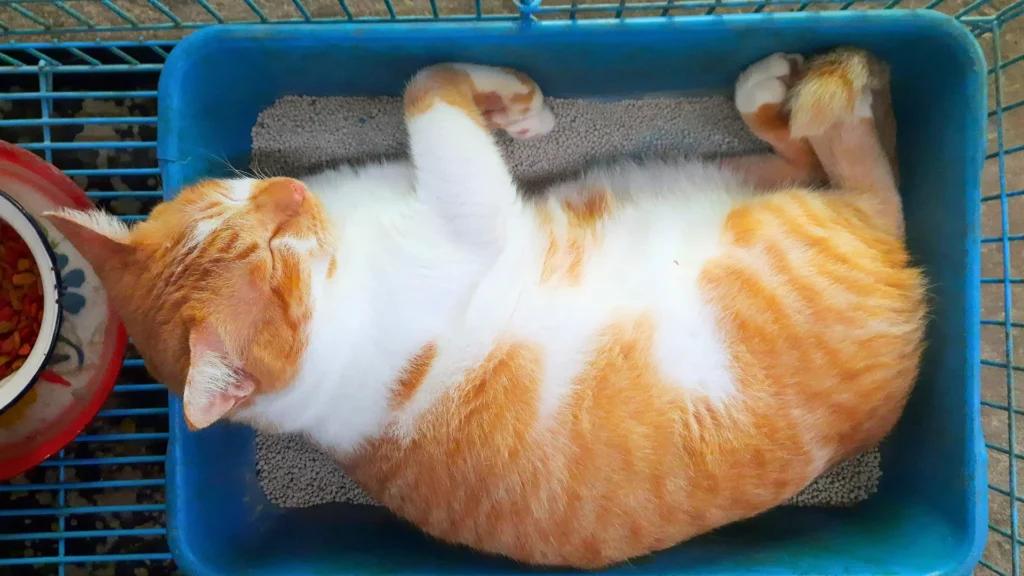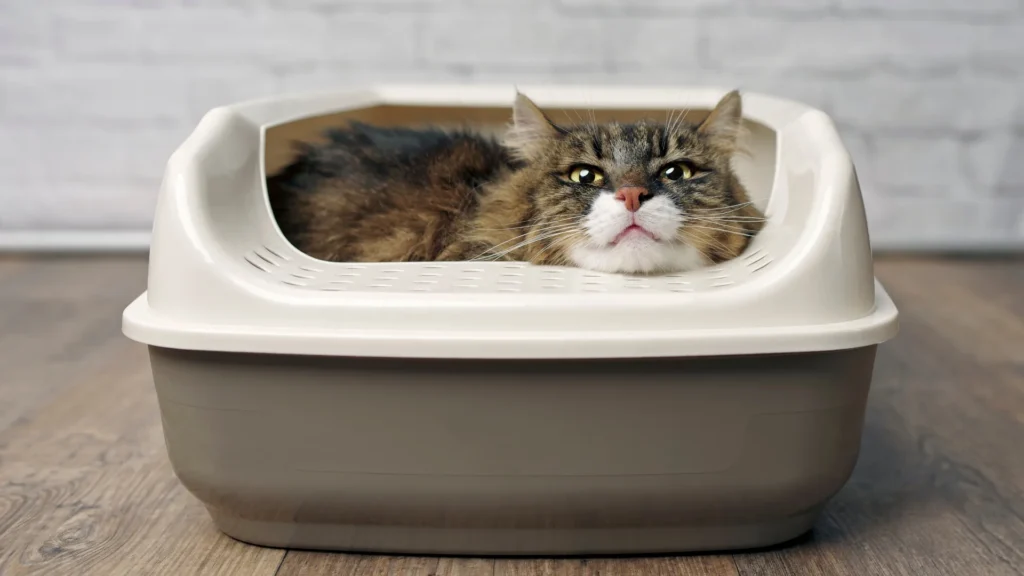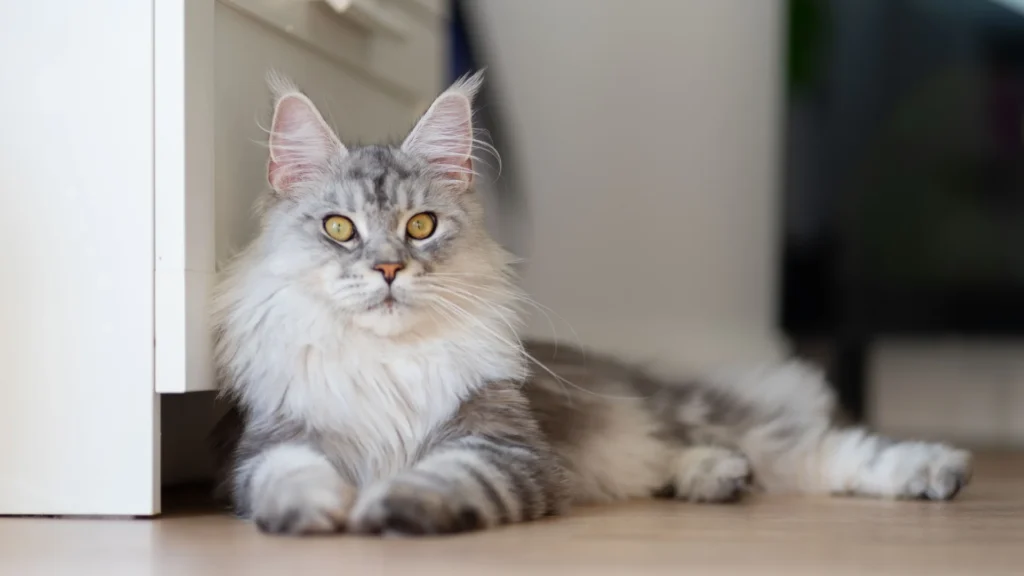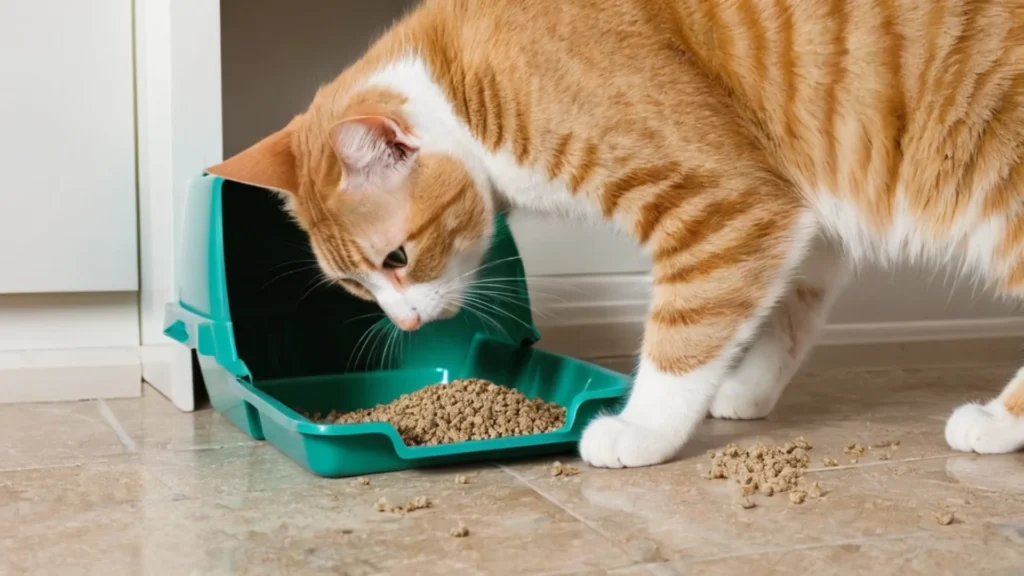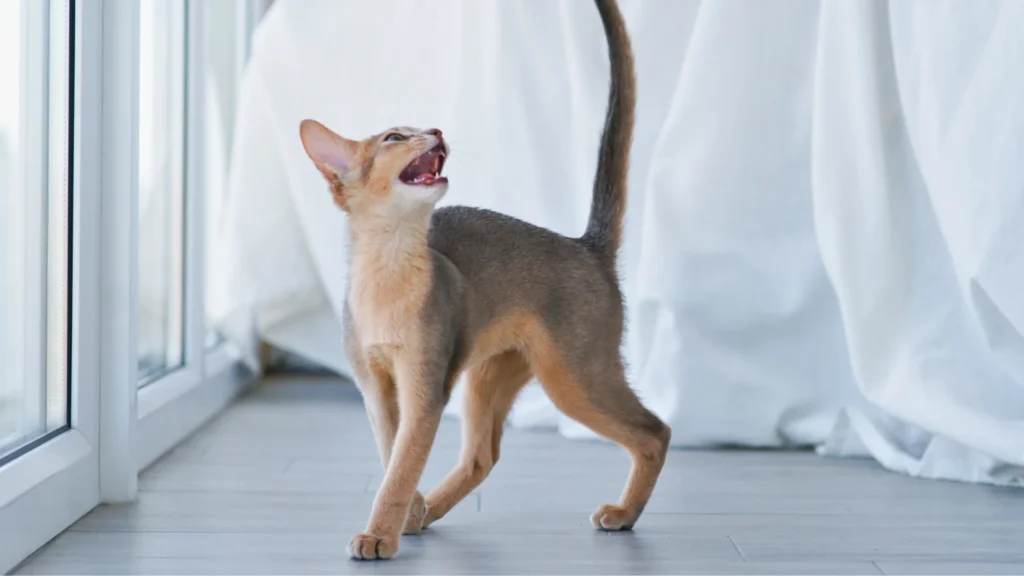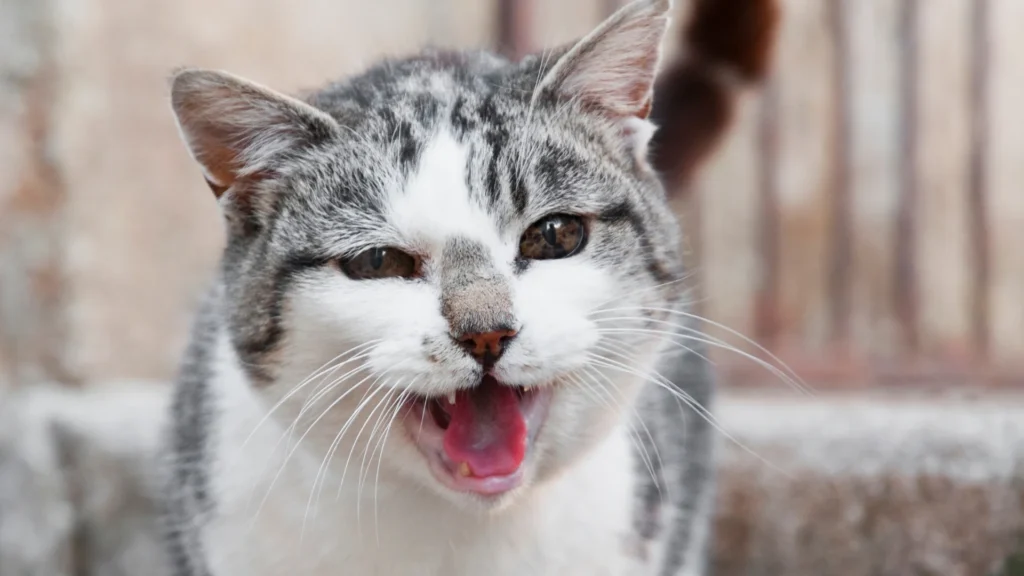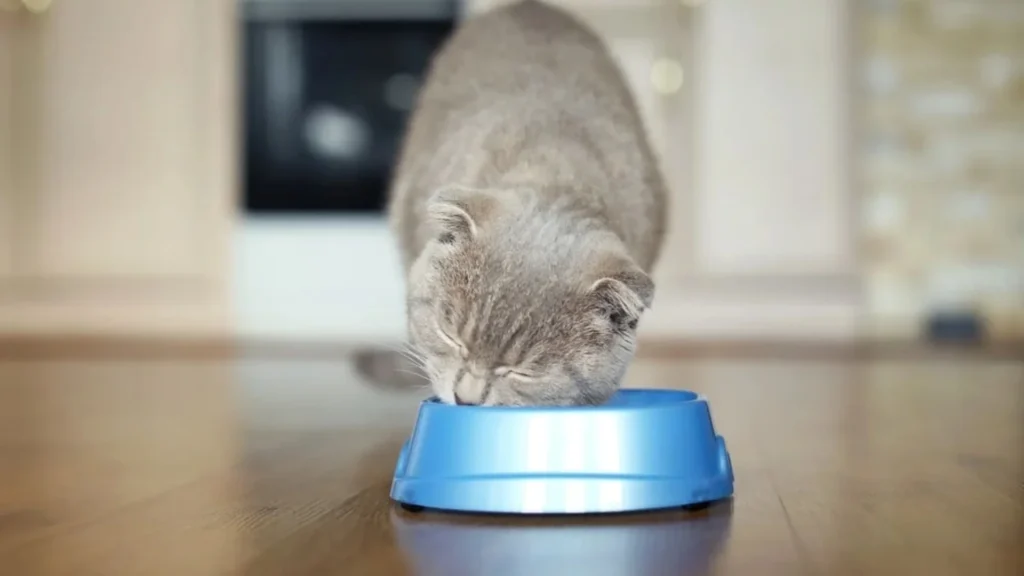Table of Contents
Cat Owners, have you ever been confused to see your cat peeing on the couch or Bed? It can be a source of disappointment and confusion. But do not stress, because this essay will analyse the reasons for this behaviour as well as give effective solutions to stop it.
We understand the issues you’re facing. By the end of this post, you will have the information you need to create a pee-free zone for your cat.
Five Possible Reasons for Your Cat Is Peeing on the Couch, as Well as How to Stop It.
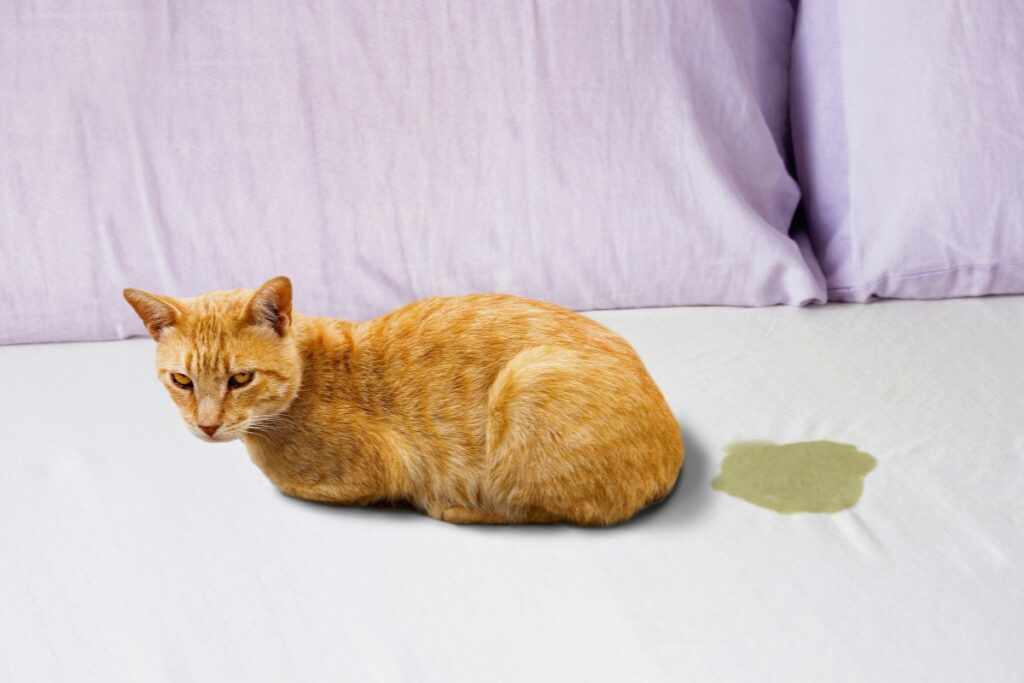
You are not alone if you have ever stepped into your living room to find that your beloved feline friend has converted your couch into an unexpected litter box.
Many cat owners have reported that their cats pee on the couch. It is not only frustrating but also difficult to identify the underlying cause and put an end to this habit.
we’ll look at the seven possible causes of your cat peeing on the sofa and offer practical ways to help you restore your home’s cleanliness and your cat’s litter box manners.
1. Health Issues
Cats can have a variety of illnesses that cause them to urinate inappropriately. These concerns include urinary tract infections, kidney disease, arthritis, etc. Cats are creatures of habit. So If you experience pain or discomfort while using the toilet, you may associate it with the toilet itself. To avoid discomfort, choose a more comfortable location, such as a sofa.
How To Address: If you suspect a medical condition, contact your veterinarian immediately. They can diagnose and treat any underlying medical conditions; timely treatment may help resolve the situation.
2. Litter Box Problems
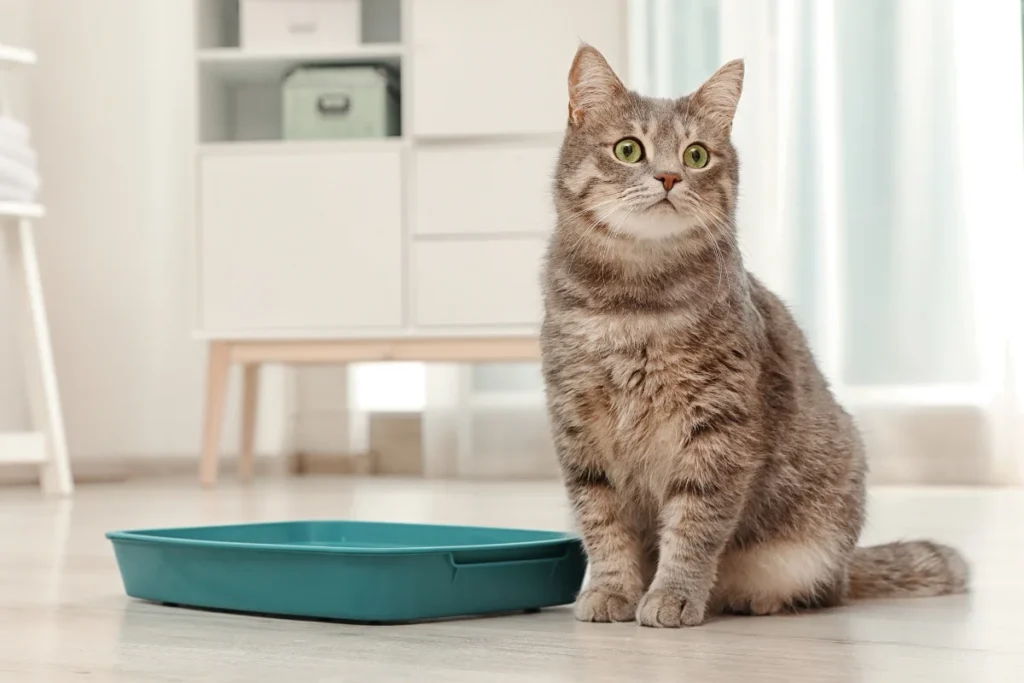
Cats are very particular about their litter box. Several factors can contribute to discomfort and cause your cat to avoid the litter box.
Types of cat litter: Cats can be sensitive to the texture and smell of certain cat litter. Some people prefer fine-grain cat litter that feels soft on the feet, while others prefer unscented options if they’re sensitive to strong odours.
Cleanliness: Cats are known for their cleanliness and may refuse to use a litter box that is not kept clean. If your Cat’s crate is dirty, the cat may become uncomfortable and try to find a clean place to relieve himself, such as the couch.
Litter box size and style: A litter box that is too small can be uncomfortable for your cat, especially large breeds or older cats with limited mobility. The style of the box (covered or open) also plays an important role. Some cats feel trapped inside a covered box, while others prefer the privacy it provides
Location: The placement of the toilet is very important. If it is in a crowded or noisy area, your cat may feel too exposed or disturbed to use it. On the other hand, they may not be useful if they are too hidden or difficult to access, especially in kittens or older cats
How To Address:
- Clean the litter box daily, especially in multi-cat households.
- Experiment with various types of litter to find your cat`s preferred texture and scent.
- Ensure the litter box is large enough for your cat and try both covered and uncovered boxes to see which type they prefer.
- Place the litter box in a quiet, low-traffic area, away from the cat’s feeding area.
- Position the litter box for easy accessibility, especially for kittens, older cats, or those with mobility issues.
- Maintain consistency in the type of litter and box once you find what works best for your cat.
3. Stress and Anxiety
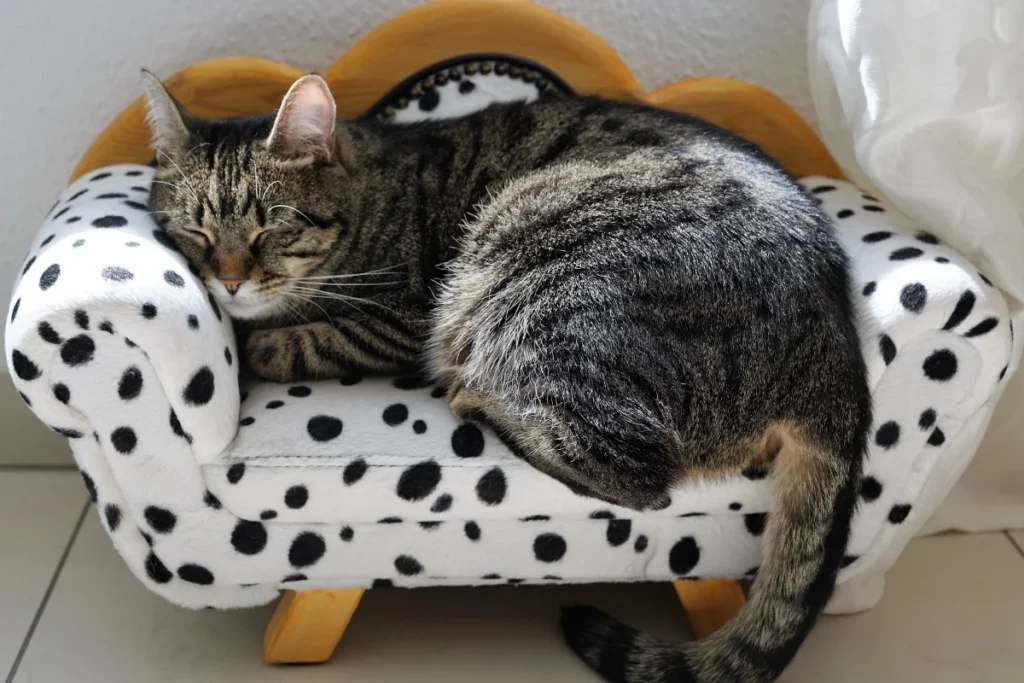
Stress and anxiety in cats can often manifest in behavioural changes, including inappropriate urination. When cats feel stressed due to changes in their environment or routine like the introduction of new pets, moving houses, or changes in their owner’s schedule, they might start peeing in places they shouldn’t, like on the couch.
This behaviour can be a form of territory marking or a way for the cat to seek comfort in an environment they perceives as unstable or threatening.
Step-by-Step Guide to Address the Issue:
Create a Consistent Routine:
- Cats are creatures of habit. Establish a consistent daily routine for feeding, playtime, and attention. This predictability can help reduce anxiety.
Provide a Safe Space:
- Ensure your cat has a quiet, comfortable place they can retreat to when feeling overwhelmed. This could be a cosy bed in a quiet room or a cat tree where they can observe their surroundings.
Increase Environmental Enrichment:
- Provide toys, scratching posts, and interactive play sessions to keep your cat mentally stimulated and physically active. This can reduce stress and redirect their focus away from negative behaviours.
Consult a Veterinarian or Behaviorist:
- If the problem persists, seek advice from a veterinarian to rule out any underlying medical conditions. A professional behaviourist can offer tailored advice and strategies for managing your cat’s stress.
Gradual Introduction to Changes:
- If introducing new pets or changes, do it gradually. Allow your cat time to adjust to new situations in a controlled and reassuring manner.
By understanding the impact of stress and anxiety on your cat’s behaviour and following these steps, you can help alleviate their discomfort and discourage inappropriate urination on the couch.
4. Behavioral Issues
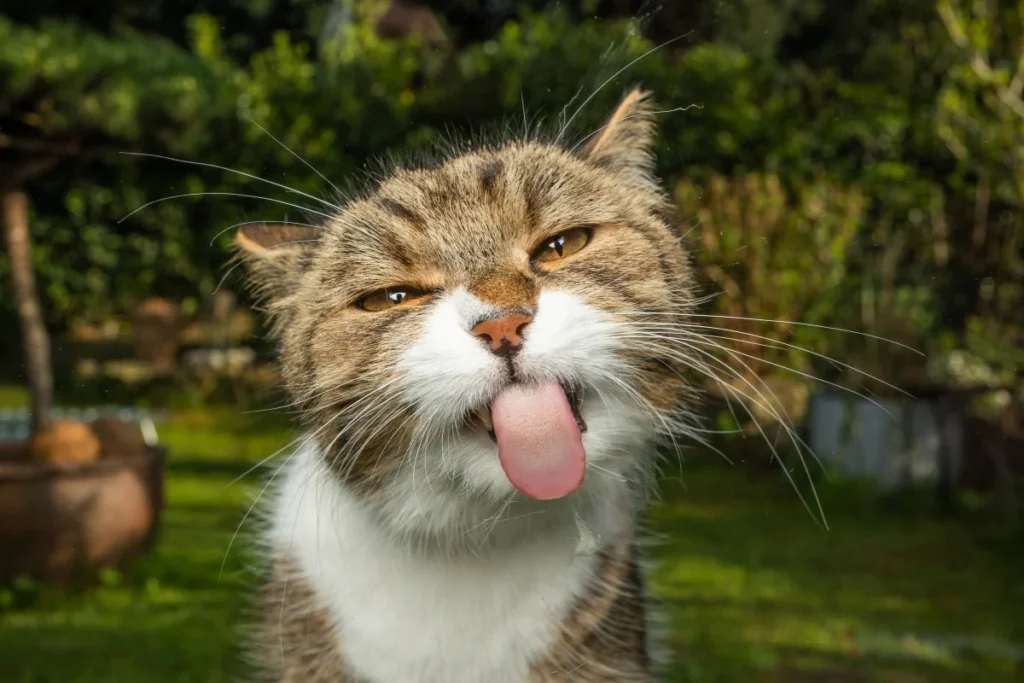
Cats may urinate on the couch to show boundaries, especially if they think their space is being trampled by a new pet or family member. This behaviour is a natural response to what they perceive as a threat to their territory.
To resolve this issue, consider having your cat spayed or neutered. This will calm your cat’s desire to mark its territory.
(castration) refers to surgical procedures performed on animals, especially cats and dogs, to prevent them from reproducing.
For male animals, this involves removing the testicles, while for female animals, this is often referred to as “castration.” “The ovaries and usually the uterus are also removed. This step not only helps control animal populations, but can also lead to behavioral changes
5. Attention Seeking
Cats are known for being very independent, but they also require constant interaction and care from their owners.
Cats may start urinating on your objects, such as the couch, to get your attention, especially if they feel ignored or if their environment or habits have just changed and they spend less time with you.
To resolve this issue, make sure your cat receives plenty of play and affection.
- It is beneficial to make time for interactive play on a regular basis.
- This will not only give them the exercise they need, but will also improve your relationship.
- Positive reinforcement is essential.
- Reward your cat’s positive behavior with treats and affection.
- This strategy will help steer their attention-seeking behavior in a positive direction.
- Additional tips for protecting your sofa: Using a waterproof cover for your sofa is an effective way to protect your furniture from accidents.
- If your cat has an accident, be sure to thoroughly clean the area with an enzymatic cleaner.
- These cleaning products break down urine at a molecular level and remove odors.
- This is important because cats tend to return to areas where they urinated previously if the odor lingers.
When to Consult a Veterinarian:
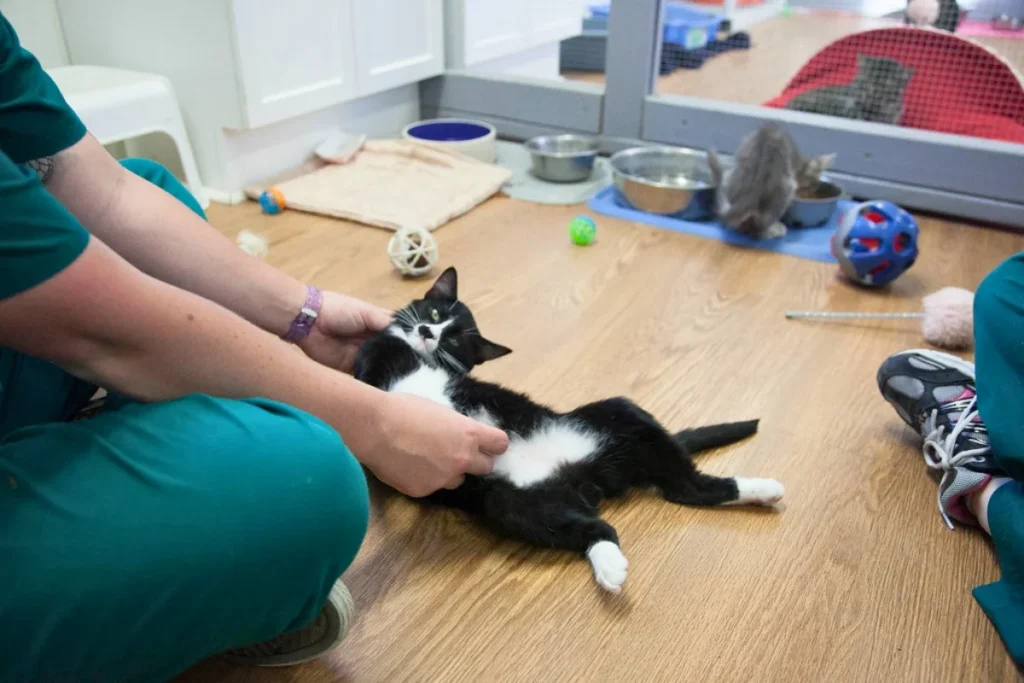
Watch for big changes in your cat’s habits, like different eating, odd litter box use, or new social ways. These might mean health issues, mild or grave. If your cat shuns the litter box, choosing the couch instead, it may be stressed, acting out, or sick, possibly with a bladder problem.
Regular vet check-ups are key to treating, preventing, and spotting health troubles. Vets give shots, do health checks, and handle worries. For emergencies like poison or sudden bad symptoms, get urgent vet help. Quick action is vital for your cat’s well-being.
How Do You Clean a Cat Peed-on Couch?
Cleaning a cat-peed-on couch requires a few steps to effectively remove the smell and discourage your cat from repeating the behaviour:
- If you notice that the urine is still wet, first blot the urine with a paper towel or clean cloth. Press firmly to absorb as much liquid as possible.
- Second, to neutralise the pet odour. Apply a specially designed enzymatic cleaner to the area. These cleaning agents effectively break down urine at a molecular level, eliminating odours. Spray or pour the cleaner liberally onto the soiled area and remove the product. Leave it on for the time specified in the instructions for use.
- Blot Again: After the cleaner has had time to work, blot the area again to remove excess moisture.
- Air Dry: Allow the couch to air dry completely. Avoid using heat, as this can set the smell.
Remember, it’s important to clean the area thoroughly to prevent your cat from being attracted to the same spot again.
Frequently Asked Question
Stress, health concerns, or an aversion to their litter box could be reasons why your cat opts to urinate on the sofa.
Ensure the litter box is clean and appealing, and address any stress or medical issues your cat may have.
Yes, urinary tract infections, diabetes, or kidney disease can lead to inappropriate urination.
Ensure to clean the litter box at least once daily. Cats often avoid using a dirty box, which might lead them to seek other places like your couch or bed.
It’s important to understand that cats do not urinate in inappropriate places out of spite. Instead, such behaviour is often indicative of stress, anxiety, or underlying health issues.
Conclusion
Understanding the reasons behind your cat choosing your couch or bed as a bathroom is crucial for effective resolution. It’s a mix of investigative skills and empathetic cat care. Often, medical issues like urinary tract infections are to blame, making a vet visit a sensible first step.
Providing a clean, easily reachable litter box for each cat in your household, along with fostering a relaxed atmosphere, is beneficial. It goes beyond mere discipline; it’s about empathy and comprehending your cat’s needs and cues. Speaking of understanding their needs, you might find our guide on how to keep cats out of sandboxes especially useful in ensuring they stick to their litter box. Patience and consistency are your friends in this journey. By tackling these elements, you can guide your cat back to preferred litter box habits, fostering a more peaceful home environment.
Patience and consistency are your friends in this journey. By tackling these elements, you can guide your cat back to preferred litter box habits, fostering a more peaceful home environment.

